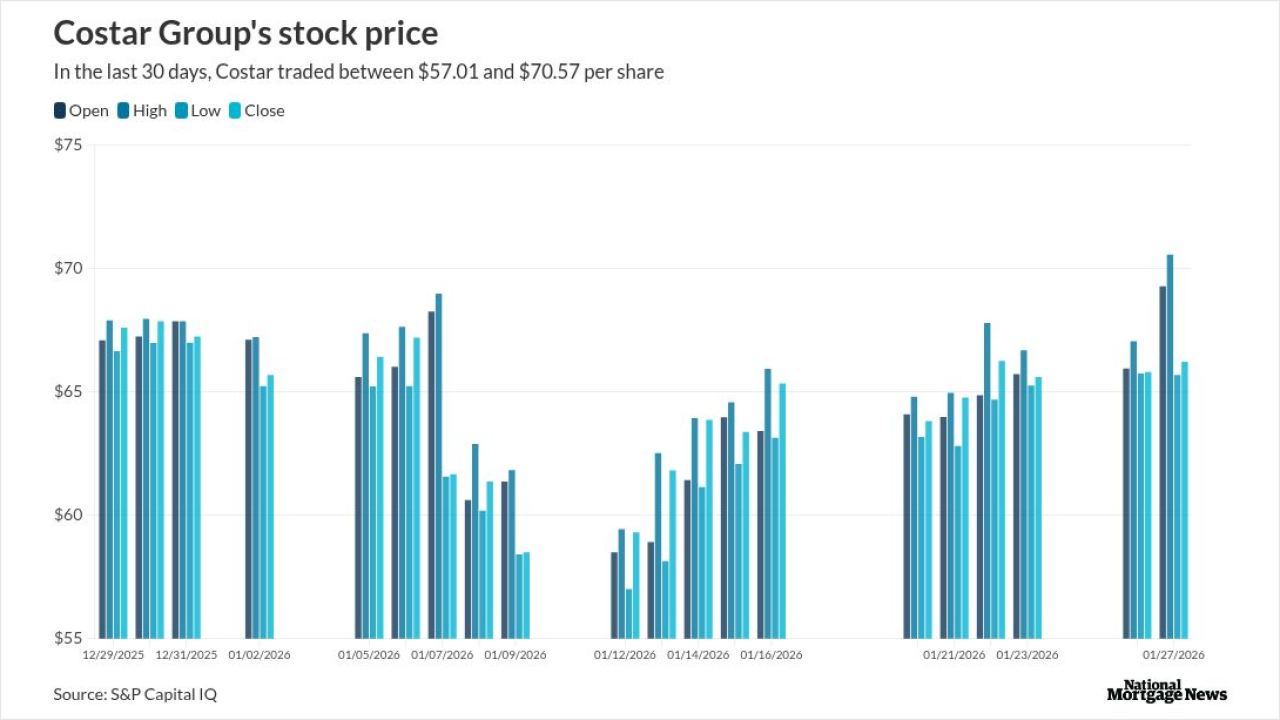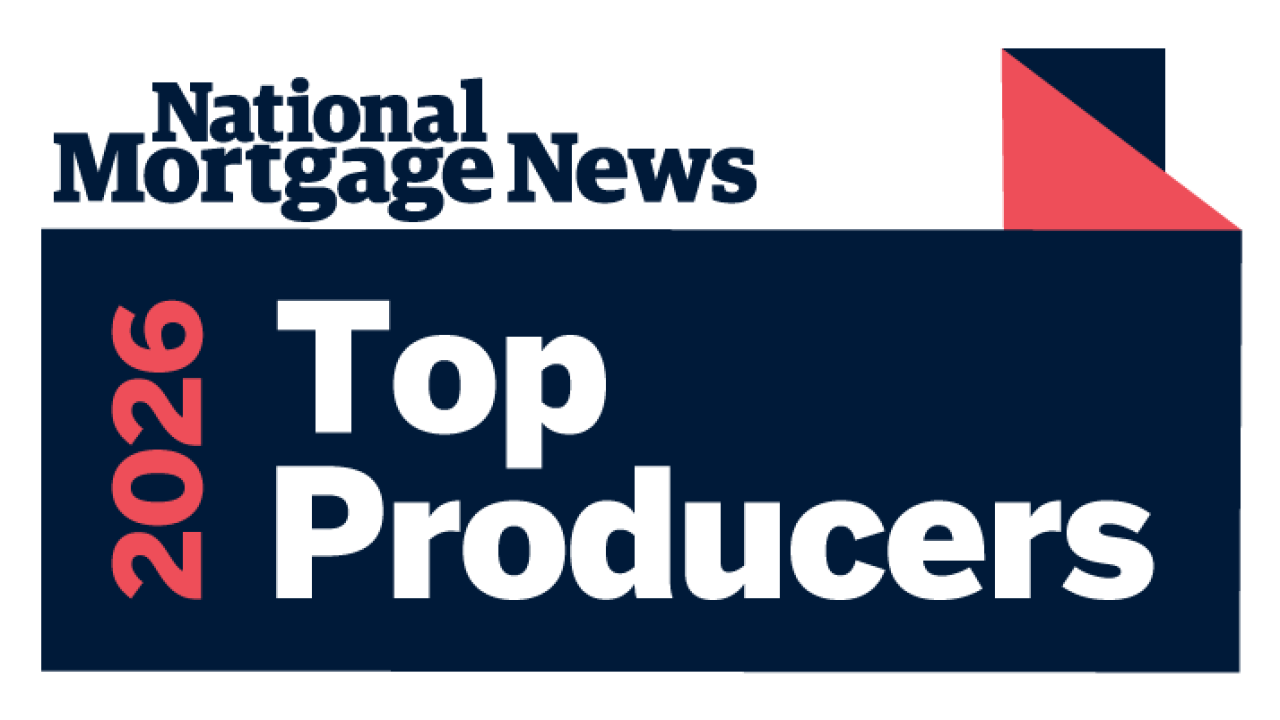While some feel yesterday's
The Fed's actions this week had already been baked into the 10-year Treasury, which closed on Tuesday at 3.91%, 17 basis points higher from the July 19 close. The latest raise is likely to have little impact on mortgage rates, which are already close to the top, said Bill Cosgrove, the president and CEO of Union Home Mortgage.
"We expect rates should start to trend down. We think it's going to be slow," added Ruben Gonzalez, the chief economist at Keller Williams. "We aren't expecting a lot of movement before the end of the year." But there's still the potential for volatility in how mortgage rates move as various pieces of data come out.
While a good case can be made for this being the last hike by the FOMC, Gonzalez added he doesn't believe it will hesitate to push short-term rates higher if the data points to the need for that.
The 10-year fell 6 basis points on Wednesday (the closing price is posted at 3 p.m. Eastern time, one hour after the FOMC made its announcement), but had started rising again in trading on Thursday morning, as U.S. government data estimated second quarter gross domestic product at a 2.4% annual gain, with the first quarter's updated to 2%.
The positive GDP report "I think gives them continued room to raise rates if they feel it's necessary," Gonzalez said.
Freddie Mac's Primary Mortgage Market Survey put the average for the 30-year fixed rate loan at 6.81% as of July 27, up 3 basis points from
The 15-year FRM was at 6.11%, a 5 basis point week-to-week increase from 6.06% and 153 basis points higher
Higher rates continue to dampen housing activity. "However, overall U.S. consumer confidence is unwavering, surging to a two-year high in the Conference Board's Consumer Confidence Index for July 2023," Freddie Mac Chief Economist Sam Khater said in a press release. "Rising consumer confidence often leads to greater spending, which could drive more consumers into the housing market.
But because pent-up demand
He was
Even if mortgage rates were to move down 25 or 50 basis points, the shift would not free up a large amount of homes already owned by borrowers hanging on to their low rate, Gonzalez noted. "We're going to be in a stable but continually depressed market in terms of the sales of existing homes."
Controlling inflation and wages have been the FOMC's primary goals. But there is
So reducing inflation to the decades-old 2% target will be difficult for Fed Chair Jay Powell to achieve.
"If they would adjust their thinking to 3% as a target, you would have a better chance of having a soft landing of the economy, but at a continued 2% target, they may not be done with rate hikes and that's concerning," Cosgrove explained.
Current mortgage rates are being affected as "investors weigh the risk that an increase in the Fed's benchmark short-term rate may not be its last," said Orphe Divounguy, senior macroeconomist at Zillow Home Loans. "Although the latest inflation reading shows price growth is moving toward the Federal Reserve's target, the slower pace of disinflation, stubbornly high nominal wage growth, and the recent uptick in economic activity suggest the inflation battle may not be won yet."
As of Thursday morning, Zillow's tracker had the 30-year fixed rate mortgage at 6.54%, one basis point lower than the prior week's average of 6.55%.
Mortgage rates are likely to remain elevated until the FOMC sees more evidence suggesting core inflation is still moderating, Divounguy said in a separate statement.
While it may not happen at the next meeting, Cosgrove expects the FOMC to push rates up another 25 basis points during this year.
The Fed's next steps will be based on what the data shows over the next two months, noted Melissa Cohn, regional vice president of William Raveis Mortgage, in a statement. The next FOMC meeting is on Sept. 19 and 20.
"The Fed looks for inflation to continue to moderate as the high rate environment begins to take its toll on employment and consumer spending; both having been surprisingly resilient to date," Cohn said.
She thinks 2% is an achievable target, but likely many months down the road. However, "we will hopefully see mortgage rates begin to settle down soon," Cohn said.
Jobs and inflation are now moving in a direction that could make this the Fed's last hike in the current cycle, said Mike Fratantoni, the MBA's chief economist, in a statement.
"We expect that to be the case, but for the Fed to hold off on any rate cuts until we are well into 2024," Fratantoni said. "We do expect mortgage rates to trend down once the FOMC clearly signals that they have reached the peak for this cycle, as the reduction in uncertainty with respect to the direction of rates should narrow the spread of mortgage rates relative to Treasury benchmarks."
Based on the 10-year Treasury being at 3.94% as of 11:25 a.m. Thursday morning and the Freddie Mac PMMS, the current spread is about 287 basis points; normal is in the range of 150 basis points to 200 basis points.
"In the housing context, the stability afforded by a pause mindset in the back half of the year should help shrink the spread between the 10-year Treasury and 30-year FRM, providing relief after a spring of skyrocketing rates; however, we will still see tension in the short term," said Dan Burnett, head of Investor Strategy at Hometap Equity Partners, in a statement.
The outlook for further Fed rate hikes this year remains unclear, with the market currently pricing it at under 50%, said a Keefe, Bruyette & Woods analyst report from Bose George, Christopher McGratty, David Konrad and Catherine Mealor.
"Given this interest rate backdrop, mortgage volumes are likely to remain under pressure through year-end 2023 as rates remain elevated," KBW said. "This is challenging for mortgage volume-dependent names (title insurers/mortgage originators) but constructive for mortgage servicers."




